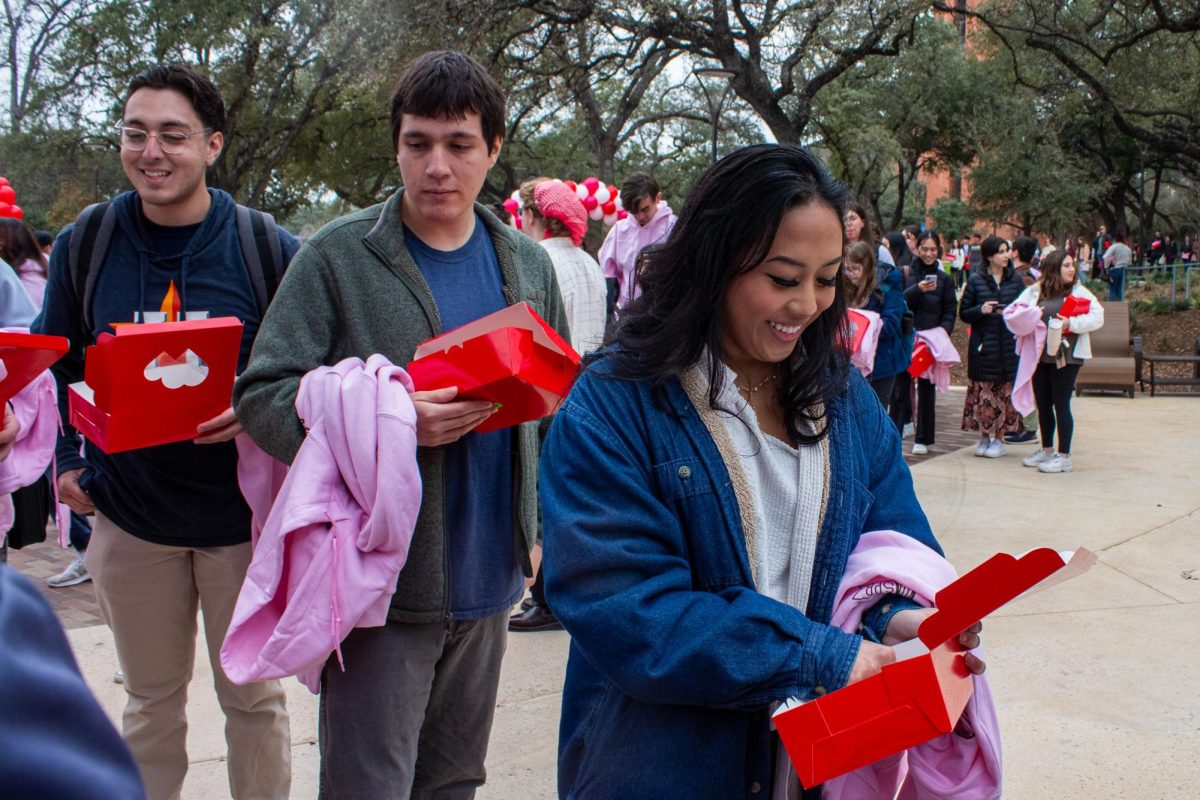Photos by Kate Nuelle
As a part of Trinity’s ProtecTU campaign to limit the spread of COVID-19, all students, faculty and staff were required to sign the ProtecTU Health Pledge, in which they agreed to practice social distancing and wear masks. Designed to hold students accountable to their peers and community, students that break the pledge face consequences, ranging from removal from residence halls to a one-semester suspension.
“Generally, if the student breaks the promise made in the Health Pledge, their infraction is either handled through Residential Life staff or the Dean of Students office, either administratively or on a Conduct Panel,” wrote Casey McLeod, senior biochemistry and molecular biology major and member of the Student Conduct Board, in an email interview.
In order for an investigation to take place, a report must be made, either by Residential Life, TUPD, or through Trinity’s anonymous COVID-19 violation form.
“These cases can then be handled through several different outputs discussed above. Generally, if the report is sent through our anonymous forum, the Dean of Students office reaches out to the alleged students to get more information prior to scheduling a case,” wrote McLeod. “Once all the necessary information is gathered from both respondents and reporting parties, a Conduct Panel case is usually scheduled.”
Most reports have come from Residential Life staff.
“The reports are consistent with rounds the [Resident Assistants] have to complete and thorough reports of noise complaints, etc.,” wrote Christina Castillo, coordinator for Student Conduct and Special Projects, in an email interview. “RA’s are not out looking for violations, but if they come across something that seems like it violated policy, they need to report it.”
So far, 42 reports have been received by the Office of the Dean of Students.
Outside of the reports made by Residential Life staff, reports have also trickled in from the student body, some of which are anonymous.
Castillo pointed out that “The reporting form asks for the reporter’s information, the students involved and a description of what occurred. The form also has a section to include uploads, such as pictures, videos, etc. Sometimes there is no information to follow up on in the report.”
When it comes to trial, these reporters will have a chance to give their say, and the students accused will have the opportunity to defend themselves.
“If the reporter is a RA or RLC, we invite them as a witness to hearings. Witnesses have a non-speaking role, but the panel can ask them questions. Generally, if the party who reported the incident is involved in the hearing for Student Conduct, they are normally asked questions from the panelist,” wrote Castillo.
“The student conduct panel overall aims for fairness and transparency while holding students responsible for their actions. There is not a ‘cover all’, or ‘blanket’ sanction for violations of the health pledge,” wrote Castillo. “All cases are viewed independently, and the panel considers several factors, such as the impact to the TU and greater community, impact on the student, how the incident unfolded, etc. Within the panel, we encourage students to talk openly about the incident, the factors that led up to the incident, and so on.”
When it comes to consequences for health pledge violations, the potential sanctions are also variable.
“Most sanctions involve a warning and fine which can change depending on how severe the actions were,” wrote Meghan Magill, junior biology major and member of the Student Conduct Board, in an email interview.
Magill also noted that there were things that students who had violated the health code could do in order to positively influence the severity of the sanctions given to them.
“Such mitigating factors including respecting Residential Life/TUPD and honesty about the situation can result in a more efficient and clearer case. These factors influence the outcome of a case, as it reflects that the student(s) understand their actions,” Magill wrote.
Rather than mere punitive measures, the sanctions are a way for students to hold themselves and others accountable to the Trinity community.
“Sanctions are not meant to upset the responsible students, but to reinforce the importance that without complete student cooperation the campus will be unable to remain open,” Magill wrote. “Trinity has promised the students, their parents, the staff, and anyone else associated with our campus that they will do everything possible to keep the campus safe and healthy, and as a result, the Conduct Panel is here to make sure that those who impede with those promises are held responsible.”













